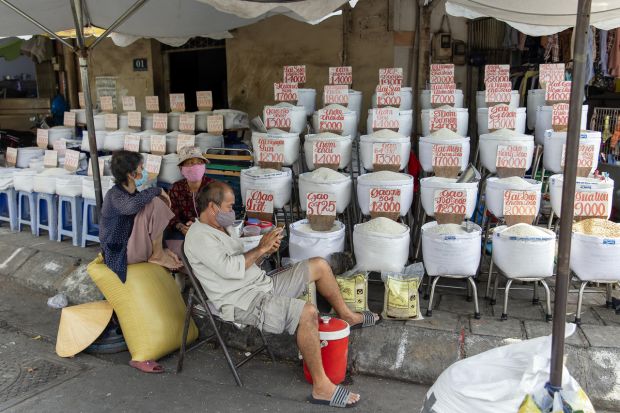How effective are the implemented stimulus packages in ASEAN?
All ASEAN countries are still fighting the coronavirus and there is no sign that the virus will disappear soon. The extent of the impact on ASEAN economies depends on how effectively the outbreak is contained. In this column I argue that the public health containment measures can cause a recession, but the lost economic growth can be recovered by the sufficiently large stimulus package for public spending.
A recession is a significant decline in economic activity spread across the economy, lasting more than a few months, normally visible in real GDP, real income, employment, industrial production, and wholesale-retail sales. Before the spread of coronavirus, ASEAN economies in 2018 (the latest available) recorded positive growth rates with more than 6 per cent for Cambodia, Laos, Myanmar, the Philippines and Vietnam. The economies of Indonesia, Malaysia, Singapore and Thailand grew between 3-5 per cent. Brunei Darussalam had the lowest growth recorded at 0.1 per cent.
However, sustaining the growth momentum in ASEAN, at least in 2020, has been challenged by the spread of coronavirus and its policy responses. All ASEAN countries are implementing the social distancing measure that curtails social contact, work and schooling among healthy individuals, with a view to delaying transmission and reducing the size of an outbreak.
It is understandable that the implementation of public health measures aims to keep everyone apart, and hence reducing the spread of coronavirus in the country. But such measure has a broader economic implication beyond the health care purpose as it comes with a cost in form of economic recession. The widespread work-from-home directives under the social distancing measure mean that many service tasks can be done remotely, but most production of goods requires social proximity, not social distancing. The social distancing measure has therefore reduced labor inputs in the production process and hence lowering outputs in the economy.
If the coronavirus continues to spread over the next few months, ASEAN countries will face economic recession as they may adopt the lockdown measure to contain the spread. The economic impact of this measure is more severe than the social distancing measure. It prevents workers from working, while preventing consumers from consuming. Consumer spending is the most significant part of aggregate expenditure in ASEAN economies. Its share in GDP is at least 50 per cent or higher in 8 out 10 ASEAN countries, namely Cambodia, Indonesia, Laos, Malaysia, Myanmar, the Philippines, Thailand, and Vietnam.
High share of consumer spending in GDP means that a small reduction in consumer spending leads to a significant decrease in GDP. The story would not end here as investors may cut their investments during the period of economic slowdown. The reduction of private investment further contributes to the decline of GDP.
Putting together, the public health containment measures can reduce or even cause a halt in production, consumption, and investment. These effects damage the economy in ways that will make the recession longer and deeper than it needs to be for purely medical reasons.
Fortunately, all ASEAN governments are reacting in ways that stimulate their economies from this sort of long-term damage using either expansionary fiscal policy or easy monetary policy or the combination of the two. For example, Singapore announced four fiscal stimulus packages with the total amount of US$44.9 billion (S$63.7 billion), which accounted for about 13 per cent of its GDP; Thailand approved a fiscal package of US$46.1 billion (THB 1.5 trillion) or 8.9 per cent of its GDP; Vietnam introduced a fiscal support package valued US$11.4 billion (VND 266 trillion) or 3.5 per cent of its GDP. The fiscal stimulus packages in other ASEAN countries, however, are lower than 3 per cent of their GDPs.
Although there is no one-size-fits-all approach to use the fiscal stimulus package during the coronavirus period, ASEAN countries should assess the effectiveness of the implemented stimulus package to explore possibility for scaling up the package with a view to mitigate both health and economic impact of coronavirus. This is important because only the sufficiently large fiscal stimulus package can pull their economies out of recession and prevent the loss of lives of their citizens. While boosting spending with large stimulus packages is likely to be inflationary in the short run, that is not all bad in the low-inflationary ASEAN economies.
Source: https://www.businesstimes.com.sg/asean-business/how-effective-are-the-implemented%C2%A0stimulus-packages-in-asean


 English
English




